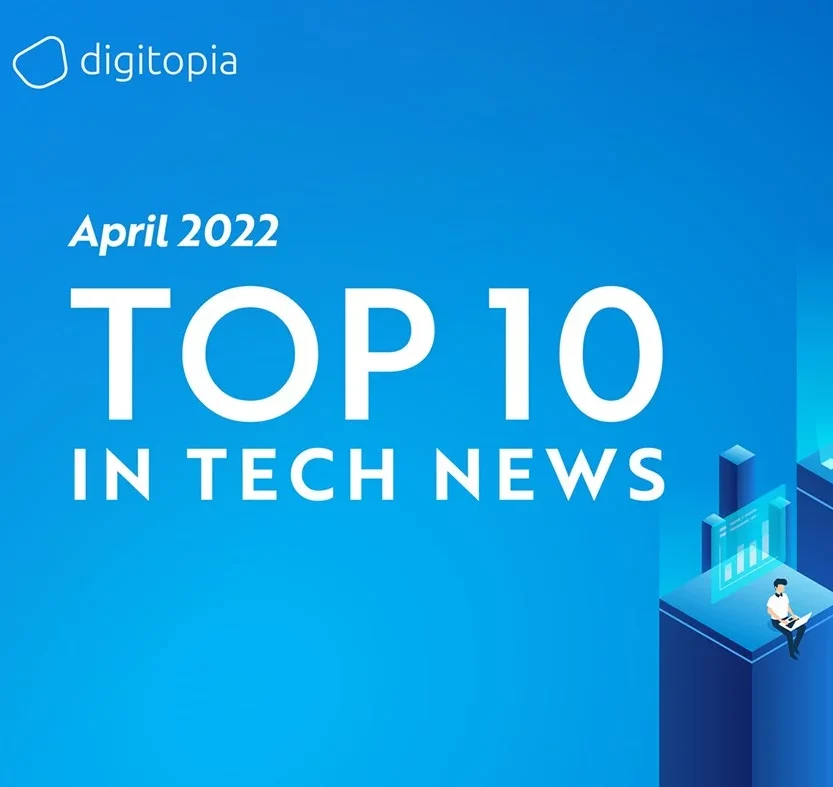
1. Matter, the new smart home interoperability standard, has delayed its launch again.
The standard which was originally slated for 2020, is intended to allow smart home devices from Apple, Google, Samsung, GE and many other companies, to connect and be controlled through one home app. However, it is stated by the developers that it needs more time to ensure a smooth performance and to finalize the software development kit.
The launch is expected to be happening in fall 2022.
Source: cnet
2. The chip design company Nvidia announced a new broadened collection of digital products at its GTC event.
These products include a new H100 AI processor that translates human speech, recognizes photo contents and plot a self-driving car’s route through traffic. Additionally, a new graphics chip for 3D tasks like animation, product design and visual data processing is said to be on the way as well.
What remains uncertain is how the company will position itself in the metaverse and how will it be benefiting from it.
Source: cnet
3. Robot-assisted surgeries are becoming more prevalent each day, as technology continues to deliver a positive impact on the health industry.
From June, cancer patients living in Wales will not have to travel to England for treatment, because they now have robotic arms to operate their surgeries. Controlled by a surgeon, the jointed arms with surgical instruments will be used for keyhole surgeries, where a high level of accuracy is required.
Doctors state the technology comes with many benefits and that resulting in smaller wounds, it would also help patients recover more quickly, compared to open surgery. Jared Torkington, heading up Wales’ robotic surgery programme, believes the next 20 years will see even more radical change.
Source: bbc
4. New anti-stalking safety feature from Tile.
Security is one of the most significant issues of the digital age that we are living in. Consumers are becoming more and more sceptical as new technologies emerge and gain further access to our daily lives.
Tile, an American consumer electronics company that offers tracking devices which can be attached to personal belongings, has just launched a new anti-stalking safety feature for their products.
“Scan and Secure is a simple tool you can use to determine if there are unknown Tiles or Tile-enabled devices traveling with you,” the company wrote in a news release. “We take the safety and security of our users and the general public very seriously.” they added.
The feature will be available for any device regardless that you own a Tile product or not.
Source: cnet
5. Consensys, a blockchain software technology company founded by the co-founder of Etherium, has been invested in by Microsoft.
The blockchain startup is known for its cryptocurrency wallet, Metamask and Infura, a set of tools to develop Ethereum apps. Having raised 450 million in a new round of funding, the company declared that It has now doubled its variation to 7 billion with investors like Microsoft, Softbank and Temasek.
Microsoft’s involvement highlights growing interest from the world’s largest tech firms in Web3, and Consensys is said to become a powerful figure that will dominate it.
Source: cnbc
6. EU and U.S. agree to new data-sharing pact.
Privacy Shield, an arrangement allowing firms to share Europeans’ data to the U.S., was invalidated in July 2020 and since then, a new deal has been sought to replace it -especially by tech giants Meta and Google.
On March 25th, the EU and the US announced that they had agreed “in principle” to a new framework for cross-border data transfers. The European Commission President Ursula von der Leyen stated that the new agreement will “enable predictable and trustworthy data flows between the EU and US, safeguarding privacy and civil liberties”.
However, the “final test” of the new agreement is said to be still taking some time to come through.
Source: cnbc
7. The first state in the U.S. that recognizes Apple’s digital license: Arizona.
iPhone users can now use their phones at security checkpoints at Sky Harbor International Airport by loading their ID’s on their Wallet app. The officials state that Apple has not made any payments to the state to support the licenses either.
Apple is running several initiatives on their long-term strategies to replace physical cards with digital equivalents, and developing its Wallet app to diversify its offerings.
Source: cnbc
8. Milestone over-the-counter crypto trade by Goldman Sachs.
Another first in the digital age we live in: Goldman Sachs, a top player in global markets for traditional assets, has become the first major U.S. bank to trade crypto over the counter.
The move is seen as an indicator of their trust in crpyo’s maturity and thus a notable step in the development of crypto markets for institutional investors.
“This trade represents the first step that banks have taken to offer direct, customizable exposures to the crypto market on behalf of their clients,” said Galaxy co-President Damien Vanderwilt.
On the other hand, it is seen as “an important development in their digital assets capabilities and for the broader evolution of the asset class.” by Max Minton, Goldman’s Asia Pacific head of digital assets.
Source: cnbc
9. Source Global, backed by Bill Gates.
One of the greatest challenges of humanity, water scarcity, is creating opportunities for new businesses to emerge.
Source Global is renewable energy company that produces water by using the moisture in the air and the solar energy supply, entirely in a self-contained system, making water a renewable resource. And the company has some industry giants’ attention, as well as support.
Bill Gates’ Breakthrough Energy Systems, Blackrock and Duke Energy have invested in the U.S based company and it has now raised $150 million in total since their foundation in 2015. It is both a business opportunity and an inevitable necessity, thus we can expect to see more developments in these areas.
Source: cnbc
10. The battle between Amazon and Microsoft is on.
Both companies have been seeking to get businesses to switch to the cloud, and now their focus is on game studios adopting machine learning and artificial intelligence.
At the Game Developers Conference (GDC), they have both featured their newest products: AWS for Games by Amazon which will help developers build, test, and even grow their games, and Azure Game Development Virtual Machine by Microsoft, allowing developers to build games on powerful PCs in the cloud.
Only time will reveal the conqueror.
Source: theverge

